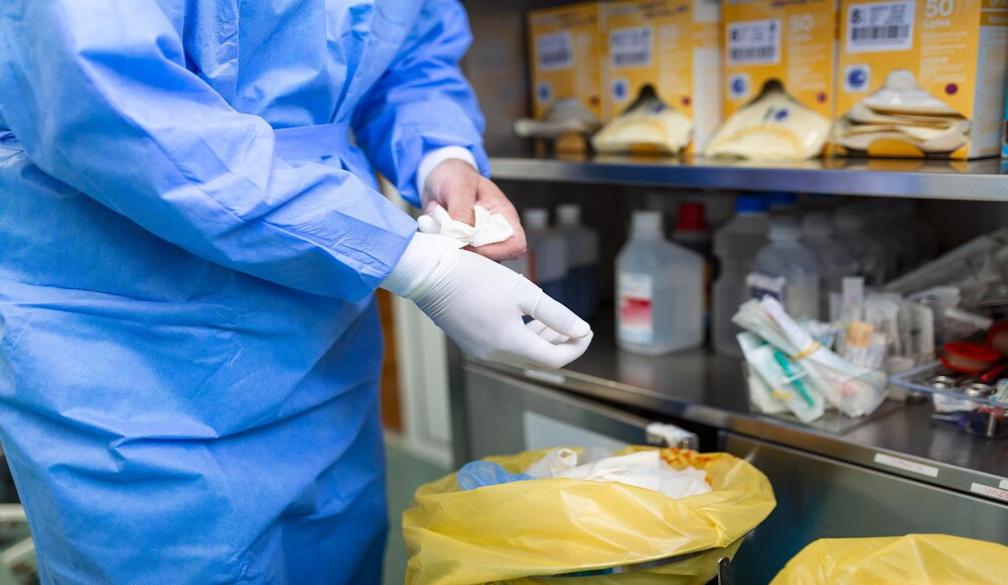Navigating Louisiana's Complex Biomedical Waste Management Regulations: A Guide for Healthcare Providers

How well do you understand the risks and responsibilities of handling biomedical waste? For healthcare providers in Louisiana, effective waste management isn't just about compliance—it’s about safeguarding public health, protecting the environment, and avoiding severe penalties. This blog delves deep into the nuances of biomedical waste management regulations in Louisiana, offering clarity to healthcare professionals striving for regulatory adherence.
The Growing Importance of Biomedical Waste Management
With the surge in healthcare demand, the disposal of biomedical waste has become a critical issue. Improper disposal practices can lead to environmental contamination, the spread of infections, and financial liabilities. Louisiana, with its diverse ecosystems and stringent environmental laws, requires healthcare providers to implement robust waste management protocols. From hospitals to clinics, adhering to these regulations is not optional—it is a moral and legal obligation.
Understanding Louisiana Medical Waste Disposal Regulations
When it comes to Louisiana medical waste disposal, healthcare providers need to align with state-specific rules that dictate how infectious waste, sharps, and hazardous materials are handled. These regulations are designed to ensure that biomedical waste is managed from the point of generation to its final disposal. Compliance ensures that waste does not pose a risk to public health or the environment.
Key Regulatory Bodies Overseeing Waste Management
Biomedical waste management in Louisiana is primarily governed by the Louisiana Department of Environmental Quality (LDEQ) and the Environmental Protection Agency (EPA). Both bodies have set stringent guidelines to prevent mishandling, ensuring that healthcare providers implement environmentally sound practices. Providers must regularly consult with these regulatory authorities to remain compliant with evolving rules. Staying updated with policy changes is critical for avoiding legal repercussions and fines.
Categorizing Biomedical Waste: What Falls Under Regulation?
Not all waste generated in healthcare facilities is the same. Louisiana classifies biomedical waste into several categories, including infectious waste, pathological waste, and sharps. Each type requires different treatment and disposal methods. Failing to distinguish between categories can lead to regulatory violations, resulting in hefty fines. Healthcare providers must train staff to identify and segregate waste accordingly, ensuring safe handling from collection to disposal.
The Role of Technology in Modern Waste Management
The healthcare sector is increasingly leveraging technology to streamline waste management processes. Automated tracking systems, waste compaction technologies, and GPS-enabled transport systems ensure that biomedical waste is securely managed and traceable throughout its lifecycle. Implementing these advanced solutions not only increases efficiency but also provides documented proof of regulatory compliance, which can be crucial during audits or inspections.
Waste Transportation: Ensuring Safety and Compliance
Transporting biomedical waste is a delicate process, governed by strict regulations to prevent spillage, contamination, and exposure during transit. Louisiana's laws stipulate that only licensed transporters can carry biomedical waste, and all transporters must follow stringent guidelines, including the use of secure, leak-proof containers and properly marked vehicles. Providers must vet their transportation partners carefully to avoid non-compliance and potential health hazards.
Facility Licensing and Training Requirements
Healthcare facilities handling biomedical waste in Louisiana must obtain specific permits from the LDEQ. In addition to acquiring permits, facilities are required to provide ongoing training to staff. This training ensures that all personnel understand waste segregation, handling, and disposal procedures. Regular updates to training programs are necessary to incorporate new technologies, regulations, and best practices in biomedical waste management.
Penalties for Non-Compliance: What’s at Stake?
Non-compliance with biomedical waste management regulations in Louisiana can result in severe penalties. These can include hefty fines, closure of healthcare facilities, and legal action. Beyond financial costs, reputational damage is a significant risk, as communities expect healthcare providers to maintain high standards of hygiene and safety. The financial burden of non-compliance far outweighs the investment required for proper waste management practices.
Environmental Impact: Why Proper Disposal Matters
Improper disposal of biomedical waste has a lasting impact on Louisiana’s environment, particularly its water bodies and wildlife. Toxic chemicals, infectious materials, and hazardous substances can seep into the ground or waterways, causing widespread harm. Healthcare providers must adopt environmentally conscious waste management practices to minimize their ecological footprint. By doing so, they not only comply with regulations but also contribute to the state’s environmental sustainability goals.
Best Practices for Healthcare Providers
To navigate the complexities of biomedical waste management, healthcare providers in Louisiana should follow these best practices:
- Regular Audits: Conduct frequent internal audits to ensure compliance with current regulations.
- Staff Training: Provide comprehensive and continuous training to all employees involved in waste handling.
- Proper Documentation: Maintain accurate records of waste generation, transportation, and disposal.
- Partnering with Licensed Vendors: Only work with certified waste disposal companies to ensure lawful handling of biomedical waste.
- Environmental Awareness: Implement eco-friendly disposal methods and minimize waste generation where possible.
By adopting these best practices, healthcare providers can remain compliant while optimizing their waste management processes.
Looking to the Future: Innovations in Waste Disposal
The future of biomedical waste management in Louisiana will likely be shaped by continued advancements in technology and a growing emphasis on sustainability. Innovations such as waste-to-energy technologies, biodegradable packaging for sharps, and advanced sterilization techniques are paving the way for more efficient and environmentally friendly waste management systems. Providers who stay ahead of these trends will not only remain compliant but also contribute to a healthier, cleaner future.
Conclusion: A Collaborative Effort Toward Better Waste Management
Navigating the intricate biomedical waste management regulations in Louisiana requires a collaborative approach. Healthcare providers must work closely with regulatory bodies, waste disposal partners, and internal teams to ensure that all processes are compliant, efficient, and environmentally responsible. By adopting a proactive stance, providers can protect public health, safeguard the environment, and avoid the financial and legal pitfalls of non-compliance.
Proper waste management is not merely about adherence to regulations; it is a commitment to maintaining the highest standards of public health and environmental responsibility.







